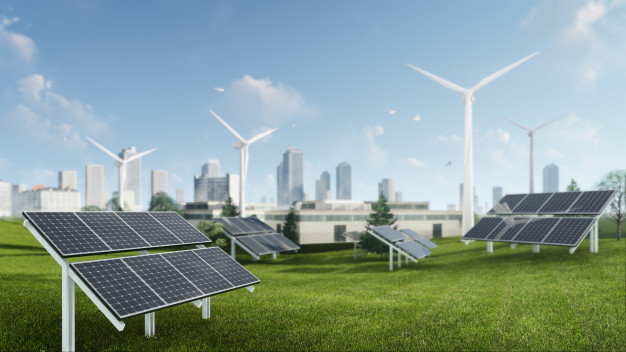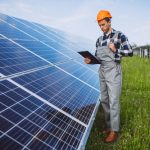Overview:
The Wind Energy Course is designed to provide participants with comprehensive knowledge
and practical skills in the field of wind energy generation. This course covers the
fundamentals of wind energy technology, site assessment, turbine design, and the
environmental impact of wind energy projects. Participants will learn how to harness wind
energy effectively and contribute to the transition toward sustainable energy solutions.
Course Objectives:
– To understand the basic principles of wind energy and its importance in the renewable
energy sector.
– To gain insights into the design, operation, and maintenance of wind turbines.
– To conduct site assessments and evaluate the feasibility of wind energy projects.
– To explore the economic, environmental, and social aspects of wind energy.
– To develop practical skills in wind energy system installation and troubleshooting.
Training Content
1. Introduction to Wind Energy:
– Overview of renewable energy sources.
– Importance of wind energy in global energy production.
– Historical development of wind energy technology.
2. Principles of Wind Energy:
– Fundamentals of wind physics.
– Wind flow and its impact on energy generation.
– Wind energy conversion systems (WECS).
3. Wind Turbine Technology:
– Types of wind turbines: horizontal-axis vs. vertical-axis.
– Components of wind turbines: rotor blades, nacelle, tower, and drivetrain.
– Design considerations for wind turbines.
4. Site Assessment and Resource Evaluation:
– Conducting wind resource assessments.
– Tools and techniques for measuring wind speed and direction.
– Evaluating site suitability for wind energy projects.
5. Wind Farm Development:
– Planning and designing wind farms.
– Environmental impact assessment (EIA) for wind projects.
– Regulatory and permitting processes.
6. Operation and Maintenance of Wind Turbines:
– Standard operating procedures for wind turbines.
– Troubleshooting common issues in wind energy systems.
– Maintenance strategies to optimize turbine performance.
7. Economic and Social Aspects of Wind Energy:
– Understanding the financial models for wind energy projects.
– The role of wind energy in job creation and local economies.
– Public perception and community engagement in wind projects.
8. Practical Applications:
– Hands-on training with wind turbine simulators and monitoring systems.
– Case studies of successful wind energy projects.
– Group project: Designing a small-scale wind energy system.
9. Evaluation and Certification:
– Pre- and post-course assessments to evaluate participant knowledge.
– Certification upon successful completion of the course.
Target Audience:
– Renewable energy professionals and engineers.
– Students and graduates in environmental science, engineering, and energy-related fields.
– Technicians and operators working in the wind energy sector.
– Policymakers and stakeholders interested in renewable energy development.
– Anyone interested in learning about wind energy and its applications.
This course caters to both beginners and those with some prior knowledge of renewable
energy, aiming to equip participants with the skills needed to contribute to the growing wind
energy sector






